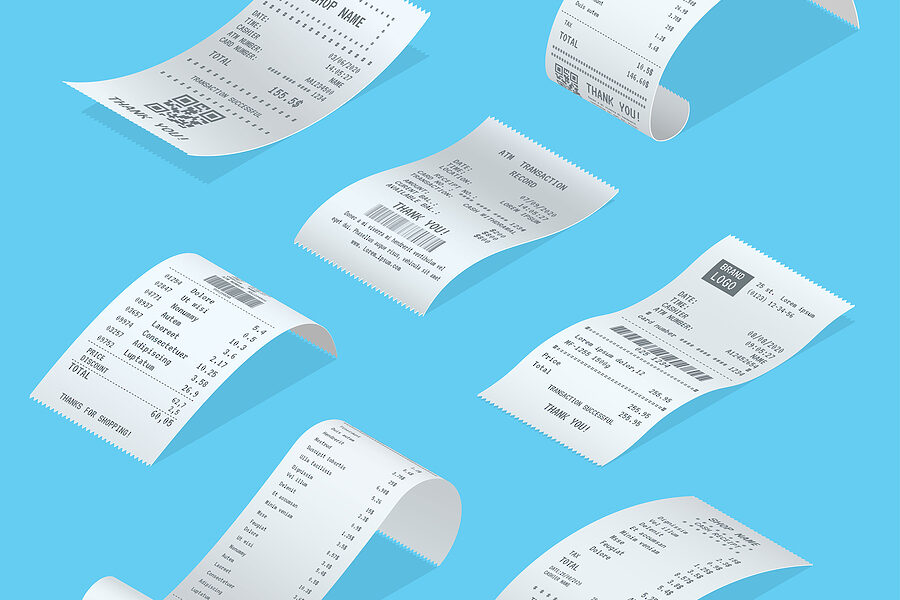Your trucking money requires clients to pay on time. It’s the only way you can keep up with your own bills, keep trucks fueled up, and afford to pay your drivers and office workers. If you experience short pays, they’re devastating.
Short pays can take your carefully balanced books and turn them upside down. They impede cash flow and make it impossible to pay. You can’t exactly go to your power company and say, “my client didn’t pay me, so you don’t get paid again, and I don’t want you to charge late fees or disconnect my power.” While they may be sympathetic, they’re not going to keep letting it slide.
It’s important that you understand what short pays are and how they affect your trucking business.
What Is a Short Pay?
A short pay is a situation where you send an invoice and your broker or shipper only pays a portion of it. It’s quite simple, you were shorted on the pay you expected. Your client has effectively gotten a short-term or even long-term loan without any interest, and it’s up to you to get the money that’s owed.
Short pays can have legitimate reasons or invalid ones. Some of the legitimate reasons include damaged items in a shipment, a missing pallet, or a partial payment arranged by your collections department.
Suppose you’re expecting $10,000, but the payment arrives and there’s only $5,000 there. You’re missing $5,000. The client informs you that they were displeased with the last load, items were damaged, so they reduced the amount they lost through broken or damaged items.
Another common reason for a short pay could be a misunderstanding over sales tax. Your client is in a state where sales tax is not charged, but your business is in a state where there is sales tax. State laws regarding whether sales tax is based on point of purchase or point of delivery would come into play.
You also have invalid reasons where you didn’t agree to a discounted rate or partial payment. The client had been extended a 10% discount if they paid with an electronic bank transfer rather than mailing a check. They took the 10% discount and mailed a check anyway. You’re owed that 10%. Or, the client didn’t have enough money and paid you what they could without notifying your office.
When you have valid and invalid short pays, you have to have a system in place to deal with them. Your approaches need to be carefully planned.
Tips for Managing Short Pays
If the short pay was legitimate, you should be expecting the reduced payment. All you’ll need to do is verify the correct amount was deducted. If your team extended a 5% discount to a frequent client and the amount due was $10,000, the amount you were sent should be $9,500 ($500 discount). If they only paid $8,500, you need to find out why.
You need to have at least one office worker available to handle the invoicing and bookkeeping tasks like calling and emailing clients to learn why the full invoice wasn’t paid. Many times, a client will dodge your emails, especially if they simply cannot afford to pay the full amount due. Avoidance is easier, even if it frustrates you and is leaving you in a financial bind.
What you need to think about is that the money that you’re owed is no different from a line of credit, but it’s an interest-free one, so you’re losing out. If a client still owes you $5,000, it’s time to start tacking on late fees and interest to make it worthwhile. Make sure your invoices have terminology of this nature that protects you and prevents a customer from taking advantage.
How Do They Affect an Invoice Factoring Arrangement?
How do short pays impact invoice factoring? You might find that invoice factoring is an ideal way to ever have to deal with short pays. It comes down to how invoice factoring works.
When you factor your invoices you enter into a partnership with a freight invoice factoring company. You pay them a fee in return for them paying the amount you’re due from your broker or shipper. The factor invoices your client on your behalf, takes the fee for doing so, and tracks down payment if they don’t pay on time.
For example, say your broker owes you $10,000. You have a freight factoring fee of 1% and an agreement to get 99% of the money that’s owed ($9,000). That leaves another $1,000, minus the $100 factoring fee, that’s paid when your broker or shipper pays the invoice.
What happens if your client doesn’t pay the invoice at all or pays too little? It comes down to the type of arrangement you’ve set up with the freight factoring specialist. If it’s a recourse arrangement, the factor can come after you to repay the $9,000 you received. If it’s non-recourse, you’re clear of any repayment obligation. This can make short pays a lot easier to deal with.
Getting Started With Invoice Factoring
To get started factoring your invoices, you need to enroll with a factor. Saint John Capital has the lowest fees around and we offer 100% factoring arrangements, so you can get the full amount due, minus fees, immediately. This is ideal when it comes to having the cash you need to run your trucking company.
The application is going to require you to enter your contact information, your MC#, and paperwork like a copy of your ID, an accounts receivable aging schedule, your bank account information, your tax ID number, and the completed factoring application.
Your clients have to be responsible, and that’s where free business credit checks come into play. If they have solid credit histories, you’re more likely to have your requests for factoring approved without issue. But, companies that have a long history of late or non-payments are riskier. Factors may not be as willing to factor those invoices.
Free business credit checks are available through Saint John Capital’s app. It makes it easy for you to research a client before agreeing to transport their goods. As we also have a find loads app with millions of possibilities, you’ll love having the freedom to check out brokers or shippers in advance. You can take high-paying jobs and lower the risk of non-payment as you work with someone new.
Another aspect to consider is when you request an advance. Saint John Capital offers advances of up to 100% once you’ve delivered a load. If you need payment when you pick up the load, that’s an option, but you get a smaller percentage of the money advanced to you. It’s your choice, but for a new company still building up savings, payment when picking up a load can be advantageous.
Finally, once you work with Saint John Capital, you don’t need to generate invoices. Our app does it for you. Send us your bill of lading for approval. If it is approved, we generate the invoice when we submit payment to you. You can upload the invoice to your bookkeeping software. It’s less work and less hassle.
Talk to our invoice factoring team about your goals as a trucking company. We’ll go over your options and help you find the best way to get paid now while reducing any impact short pays have on you. With our low fees, free credit checks, and same-day payment options, you’ll find it easier than ever to grow and manage your trucking company.















